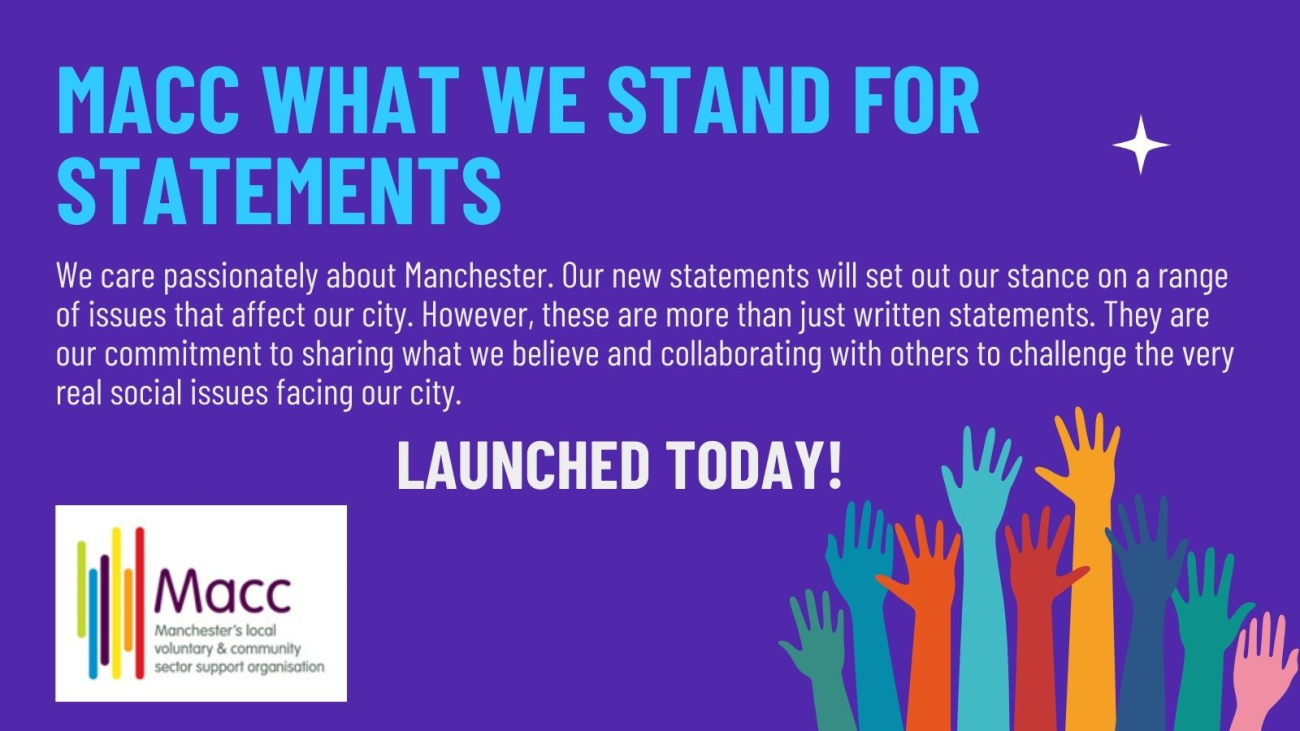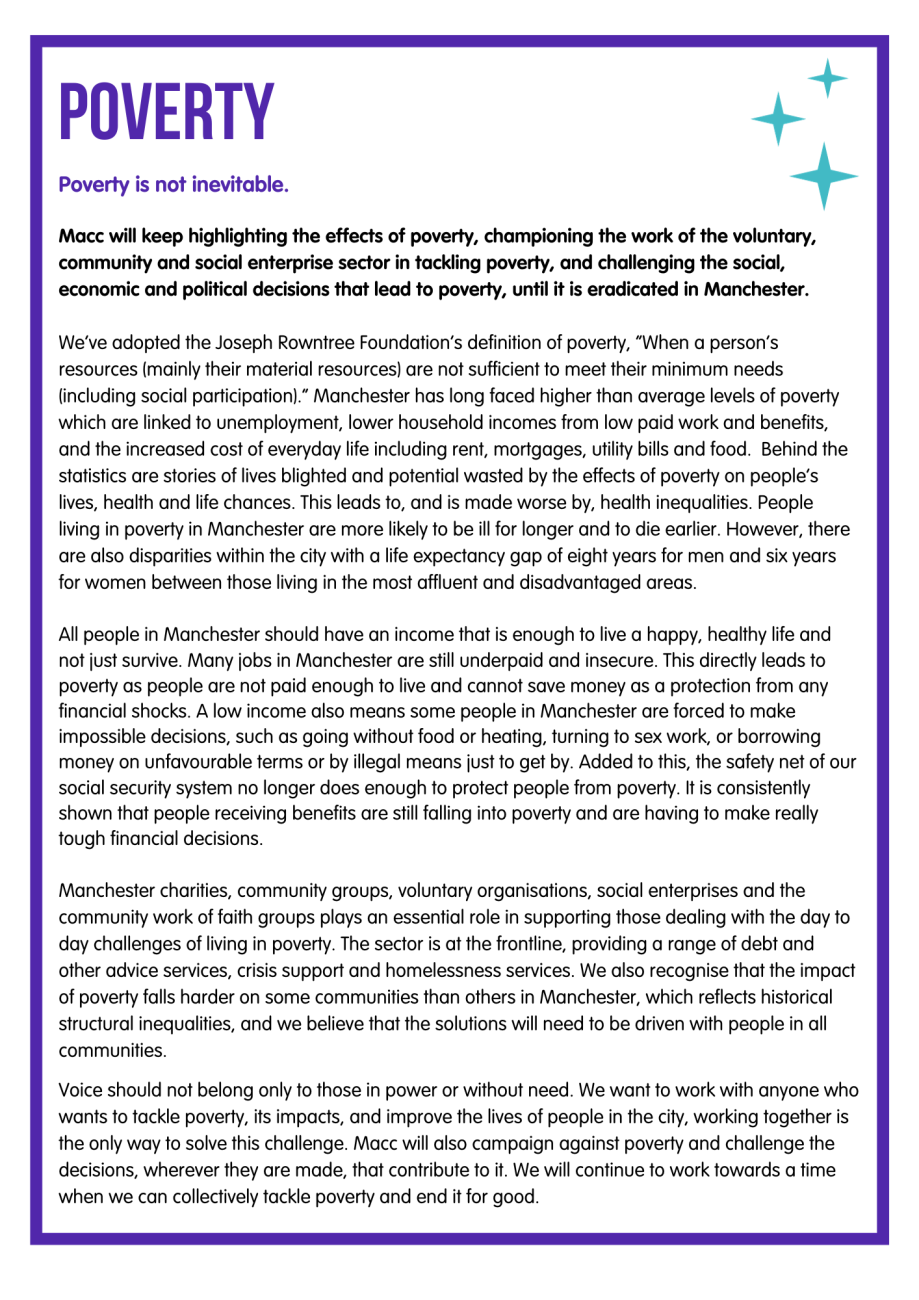
Today, Macc has launched our first ‘What we stand for’ statement. Our new policy statements set out our stance on a range of issues that affect our city. However, these are more than just written statements. They are our commitment to sharing what we believe and collaborating with others to challenge the very real social issues facing our city.
We believe that Manchester is a great city but one that faces challenges such as poverty, homelessness, climate change and ill health. In fact, the impact of some of these issues such as poverty and ill health are felt more in this city than elsewhere in the country. We want to see real change in Manchester and so we are inviting you to join with us to discuss, campaign and take action on these issues.
In launching our first statement today, Macc Chief Executive Mike Wild said:
Our first statement focuses on poverty and following this, we will be launching statements later this year on anti-racism, the VCSE sector and homelessness.
If you support what we are saying, please share our statements and add your own comments. There will be also future opportunities to join us on camera to show your agreement to our statements as they are launched.
